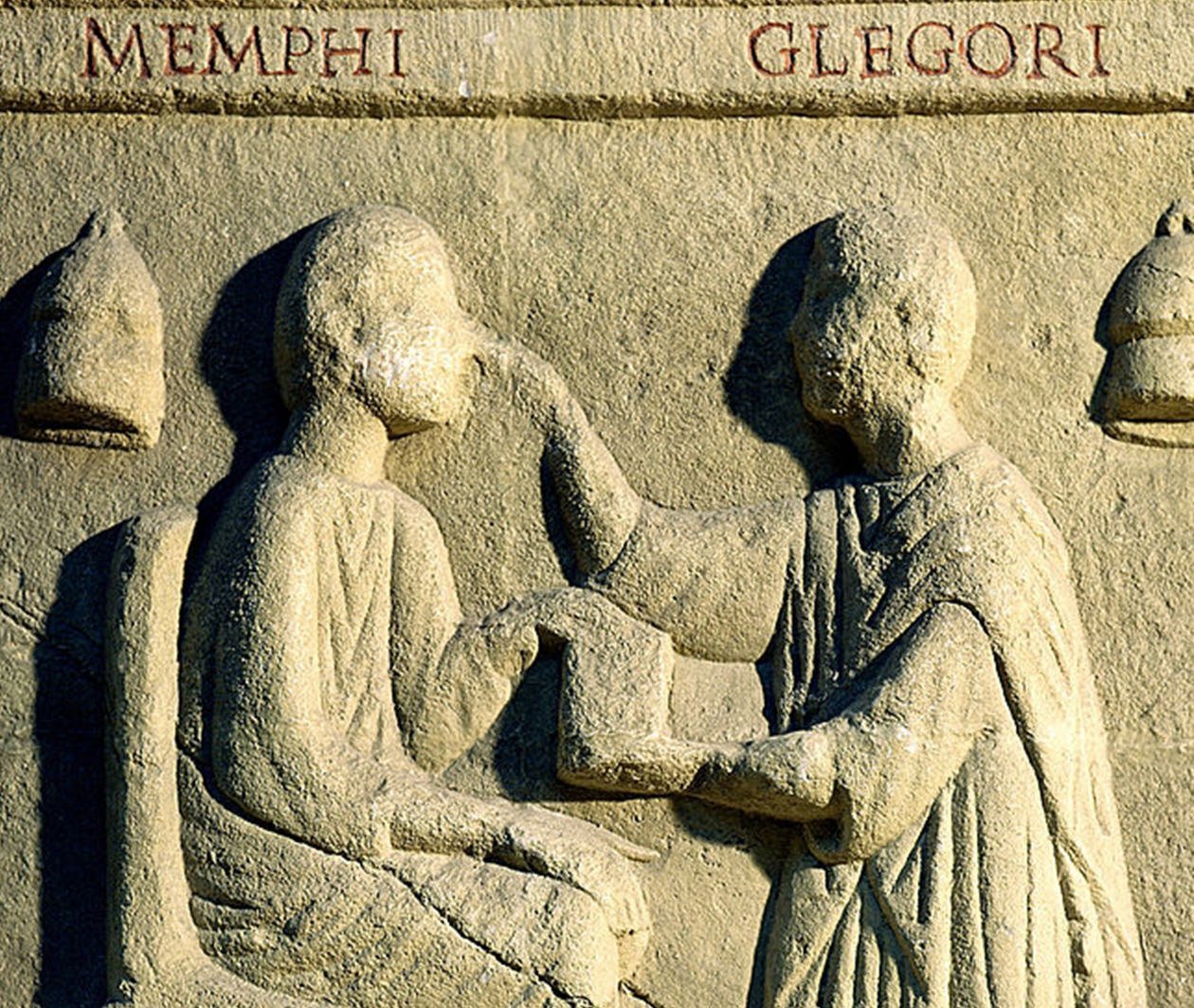Skip to 0 minutes and 17 seconds Here. We’ve got two images of people in the ancient world. They’re not gods or heroes, just ordinary people. And to our eyes, I think they look pretty healthy. The first image shows men wrestling. They’re completely naked. This was normal for ancient athletics. The second image is sometimes known as the Bikini Girls. It’s interesting that these women, although they’re wearing rather more clothing than the men, are also exercising, running, playing with the ball. One is wearing a crown. She won her event. Why are they doing this? Is it to keep healthy? These images of exercise look very modern in some ways. But if people in ancient Greek and Roman societies really do the same things as us.
Skip to 1 minute and 9 seconds And did they do them for the same reasons as we do? In fact, were they actually healthy? How would we measure their health and what evidence do we have to help us answer our questions? People in the ancient world might claim they were healthy, but would we agree? Even today, health is a difficult concept to define. Thinking about health can illuminate the relationship between the modern world and the ancient Mediterranean world, while looking at ideas from another culture, can help us rethink our own assumptions about health.
Skip to 1 minute and 47 seconds Do we look back to the Greeks and Romans as supreme models of health due to a simple diet free from preservatives? Or do we focus on our greater knowledge of the body? The scientific progress we’ve made, for example, with understanding the role of minerals or vitamins in the diet and developing vaccinations and finding ways to preserve food safely. And which attitude really matters here. In this course, we’ve arranged the themes by looking at the parts of the body from head to toe. In Western medicine, this has been a traditional way of organizing manuals for doctors. But we can also use this approach to think beyond purely medical approaches to the body.
Skip to 2 minutes and 29 seconds So when we look at the eyes, we will consider theories of sight, eye diseases and their treatments, but also the symbolic value of the eye. For example, what was the evil eye? How was that used? Even today, the body gives us ways of thinking about our world more generally. So we talk of the head of an organization or facing up to a fact or digesting something we’ve read or trampling on someone else’s views. You’re going to be learning an important skill how to evaluate evidence. Look at those two images again, to understand them fully. We need some context.
Skip to 3 minutes and 13 seconds The image of the wrestlers comes from ancient Athens. It dates to around 510-500 BCE, and it’s on a piece of marble that was later reused to make a wall. Originally, it would have been a statue base for a funerary monument. Other sides of the statue base show a ball game and a cat and a dog growling at each other as their owners watch now down to the bikini girls. That one comes from the fourth century C.E. Roman World. The mosaic was used to decorate a floor in a villa, a rich private residence. It’s the Villa Romana del Casale, which is now a UNESCO’s World Heritage site. So one image was on public display and may commemorate a real athlete.
Skip to 4 minutes and 2 seconds The other is from a private house and the really wealthy one at that. So it would have been used to impress lots of visitors. But of course, it may be a fantasy image. And although both images are ancient, they’re a thousand years apart and from two different ancient cultures. This course will help you read precious historical artifacts like these. But for now, I want you to think about how we and the ancient Greeks and Romans defined health. Just take a few moments to write down your definition of health today and then jot down what you think. The ancient Greeks and Romans might consider to be health. And then continue.

